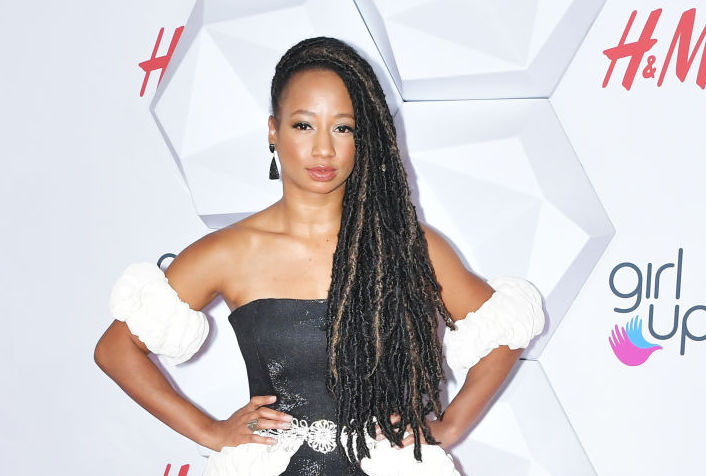It was never my intention to be a hairstylist. Growing up, I aspired to be a writer and director. However, one day I received a call that would shift my frame of mind when I was asked to "shadow" the Assistant Director for an MTV Music Awards promo commercial with a big name celebrity. It was my first time working on a television set, so as you can imagine, my excitement was immeasurable!
When I arrived that day, I noticed something increasingly odd. During my break, the models in the hair trailer were patiently awaiting the arrival of the hairstylist who was scheduled to be on set that day. Time went on, and while assisting the wardrobe department, I was informed that the hairstylist, a white woman for the shoot, still hadn't arrived, and the models were needed in one hour to film.
Noticing a majority of the models were Black women and Afro Latina, I immediately sprung into action. There was no way I could allow my sisters to go out like that! I'm still unsure why I had my personal hair bag in my car with all of the necessary supplies, but one thing is for sure the production team was beyond ecstatic that I came prepared.
One model had long flowing hair, only needing a slight touch up. I pressed her edges and flat ironed her hair to keep the silkiness flowing. Another model (who later blew up as a successful actress) needed a press, curl, and style. And someone else rocked this amazing blonde and brown afro. I moisturized and combed through her gorgeous fro with my fingertips to make sure her crown maintained its volume. I was able to style all of these beautiful brown ladies within an hour.
The hairstylist in question never showed up, and honestly, I don't think she ever planned to. She knew these were Black models and actresses, to which I assume she probably didn't know how to work with textured hair. This took place in 2007, and it breaks my heart that in 2021 these are the same issues still occurring.
To shed light on this issue, veteran actress Nia Long has been incredibly vocal about the lack of diversity in the hair and makeup trailer while pushing for more inclusion within these departments. Even "Insecure" actress, Natasha Rothwell, told the Hollywood Reporter just last February that there have been several times she prepped her own hair and makeup before arriving on-set in fear that the hired stylist wouldn't know how to do her hair and makeup.
Most recently, the "High School Musical" star Monique Coleman confirmed to the Insider that her on-screen character often wore headbands because the stylists on set weren't equipped to do a Black woman's hair.
"We've grown a lot in this industry, and we've grown a lot in representation, and we've grown a lot in terms of understanding the needs of an African-American actress," she said. "But the truth is, is that they had done my hair, and they had done it very poorly in the front."
The lack of representation of Black hairstylists and barbers on television and film sets is unacceptable – especially where there is a budget of millions of dollars to make these films and require Black men and women to act in these roles.
Leaving the set that day, I felt inspired and eager to start a career in cosmetology. I went home and began practicing on hair dolls, enrolled in Santa Monica College's cosmetology department, and practiced on whoever's hair I could get my hands on. Though I did not pursue a cosmetology career, I am still an advocate of diversity and inclusion, especially in Hollywood. Black women, our hair is our crown, our color is our shield, and our voice is our most powerful weapon.
